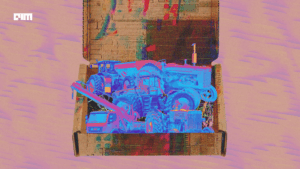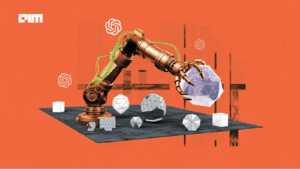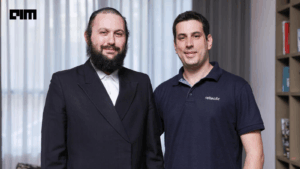Stack Overflow was once the default destination for developers, with the mid-2010s seeing more than 200,000 new questions posted monthly, and its upvote-based reputation system celebrated as a way to elevate quality and trust in a fragmented developer internet.
But by April 2025, the number of new posts had plummeted by more than 90% from its 2020 peak. ChatGPT’s arrival in late 2022 accelerated that downturn. As developers increasingly turn to AI tools for coding help, Stack Overflow has faced an existential crisis.
Prashanth Chandrasekar, the company’s CEO since 2019, acknowledged the urgency of the challenge during a recent appearance on Bloomberg Intelligence’s Tech Disruptors podcast. “When ChatGPT happened in November 2022, the entire world had to rethink their business models,” he said. “The user interface has actually changed… people are going to GenAI tools. So why should we not also be there?”
This recognition that the public Q&A model can no longer stand alone has prompted a sweeping pivot. The company is now trying to redefine itself as both a platform for enterprise AI enablement and a long-term career community for developers.
Embracing AI, Selectively
Central to the company’s new strategy is OverflowAI, a set of generative AI tools designed to modernize Stack Overflow’s public and private offerings.
These tools include AI-assisted search, summarization, and contextual responses inside platforms like Slack, Visual Studio Code, and Stack Overflow for Teams. “We’ve incorporated AI into our SaaS product by introducing OverflowAI, which includes search summarization features,” Chandrasekar explained on Tech Disruptors. “It pulls from both the public platform: 60 million questions and answers, and the private enterprise knowledge base.”
The AI features are positioned as accessibility enhancements, especially for early-career developers. “The question-asking experience on Stack Overflow is a high-standard experience,” he said. “But we also want to make it a little more friendly… so we’ve incorporated Gemini into that process to suggest if something’s already been asked before.”
Still, the more decisive shift is happening not in how users engage with Stack Overflow, but in how machines do.
Selling the Data
Under Chandrasekar, Stack Overflow has moved aggressively to monetize its most valuable asset: the vast archive of user-contributed content. Through its Knowledge Solutions business line, the company now licenses access to its dataset to OpenAI, Google, Snowflake, and others.
“We decided to go on this big motion with engaging all the big AI companies and cloud companies… striking multi-dimensional partnerships,” Chandrasekar said. “They’re paying us for access to historical and ongoing data in a recurring revenue model.”
Rather than contest the use of its data in court, as some publishers have, Stack Overflow opted to block scraping and open API-based partnerships instead (Note: Reddit is following a similar approach). “If you’re building a chatbot or whatever, you have to work with us,” he said to ZDnet. “Let’s have a fair business agreement.”
Read: Reddit Is Sitting on a UGC Goldmine and Big AI Wants In
That data now powers various AI agents and copilots. Inside enterprise environments, it also enables internal bots to serve company-specific knowledge. Uber, for example, has integrated Stack Overflow’s private platform to support an in-house assistant. “They built an AI co-pilot called Genie,” Chandrasekar said, “which has full access to their Stack Overflow for Teams content… and it surfaces contextually relevant answers across Slack.”
The Trust Layer for Enterprise AI
Chandrasekar framed Stack Overflow’s relevance in the GenAI era around three limitations he sees in today’s LLMs: hallucinations, lack of fresh training data, and shallow understanding. “Answers are not really knowledge,” he said. “There are complexity cliffs that these AI tools hit… and the hallucination rates were very high early on.”
This is where Stack Overflow’s curated, peer-reviewed knowledge base becomes an asset not just to humans, but to the LLMs themselves. “We believe we can play a very big role by combining highly trustworthy, human-curated knowledge with the power of AI,” he said.
It’s also the company’s fastest-growing revenue segment. According to Chandrasekar: “The Teams and advertising businesses are steady, but data licensing is expanding most rapidly.”
Can a Community Be Rebuilt?
Still, the public-facing Stack Overflow platform continues to shrink. Chandrasekar doesn’t deny that traffic is down. “Historically, traffic was how people measured sites like ours,” he said. “That may be a very limiting metric going forward.”
Rather than fight for search-driven traffic, the company is investing in new community features: real-time chat, live discussions, learning challenges, and eventually video tutorials. “We want to go from being a knowledge base into much more of a community site,” he said. “A place where developers can grow their careers and connect.”
The ambition is to offer a differentiated experience from broader platforms like Reddit or Discord, by doubling down on technical depth and trust. “Those are general-purpose communities,” Chandrasekar said. “We are focused on technologists… and the accuracy, career growth, and community connections they need.”
The pivot also includes a planned rebrand: a move some users have criticized as cosmetic. But Chandrasekar sees it as necessary. “We can’t just be Stack Overflow the Q&A site anymore,” he said. “We need to reflect that we’re now a community, a learning platform, and a business-to-business data company.”
Chandrasekar is under no illusion that the LLM market is stable. “The LLM game is getting commoditized,” he said. “Everyone will use the same underlying data. So we’re focusing on what we do best: curating expert content and providing trusted infrastructure.”
In five years, Chandrasekar sees two pillars holding up the business: a durable developer community and a default role inside enterprise AI stacks. “We want to be the place where the human side of software development lives,” he said. “And the place where trustworthy knowledge powers the next generation of intelligent tools.”










